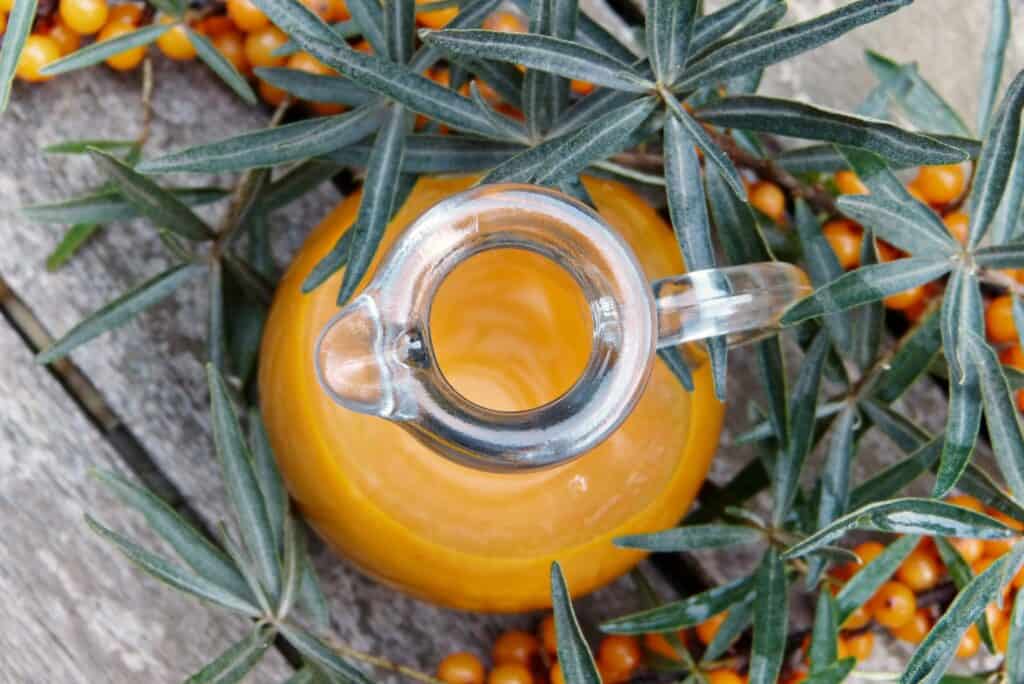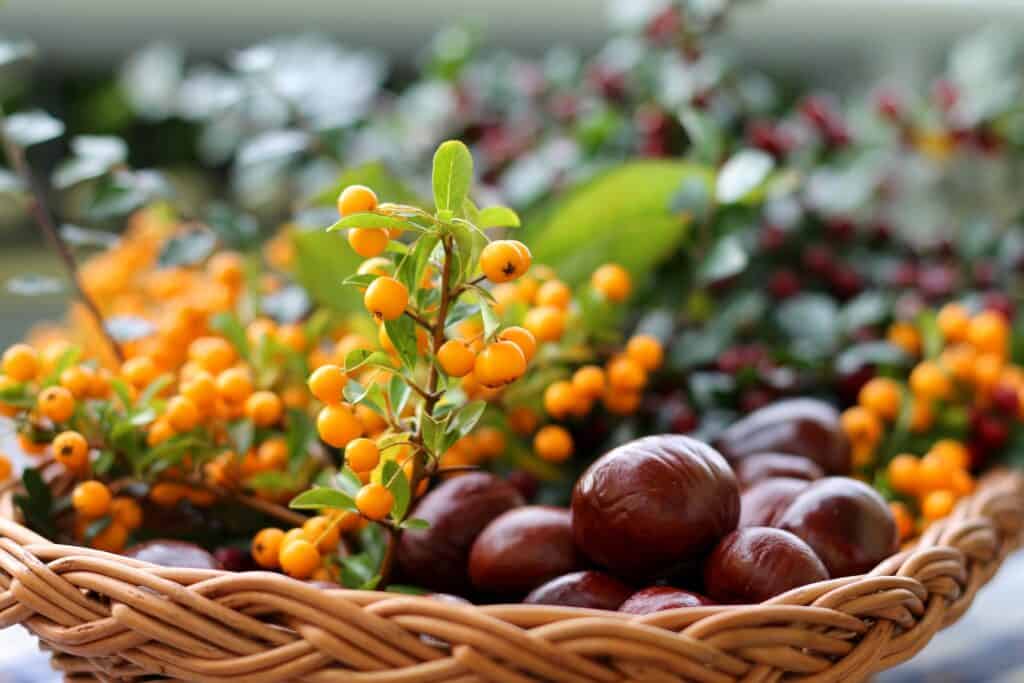
Sea buckthorn, important source of vitamin C

Sea buckthorn, is one of the most important sources of vitamin Cin the cold season. Sea buckthorn can be used every day as a food tea, this is due to the special aroma of the fruit. In summer, cold white sea buckthorn tea has a refreshing effect, obviously cutting thirst due to its sour taste.
Very important are the effects that flavones print on the circulatory system. They increase the contraction force of the myocardium, improving coronary circulation and the general state of metabolism. Qercetin contained in sea buckthorn, causes vasoconstriction and a decrease in capillary permeability, which explains its effects in the treatment of hemorrhagic diseases.
Vasoconstriction is followed by vasodilation at the renal level, increasing diuresis, sea buckthorn fruits being also useful in renal failure and edema. Sea buckthorn has a hypotensive effect and a toning action on the circulatory system, different from that of digitalics or caffeine, being useful in mild or even more advanced heart failures, accompanying the basic medication, as platelet antiaggregation, antitumor, anti-inflammatory, antioxidant, antiseptic, choleretic, diuretic and antihypotensive.
Sea buckthorn, true nutritional supplement

Sea buckthorn fruits are primarily a natural polyvitamin, with effects in all conditions caused by the deficiency of some vitamins, but also with special recommendations for convalescents, in states of weakness, toning for children and the elderly.
The sea buckthorn is harvested in late summer and early autumn. We can find it on the valleys of Prahova, Teleajen and Trotuş, in the hills of Buzău and throughout the subcarpathian chain, even in the Delta. The orange bunches of the, a spiky shrub, also have the property to fix the land downhill. Due to the special value of the fruit, numerous researches have been carried out, the sea buckthorn being introduced into the crops and improved in many countries such as the USA, Germany, etc.
Sea buckthorn, contains 80-85% water, sugars, in particular monosaccharides, organic acids, pectin, polyphenols and tanninous substances, cellulose, protein, fatty oils, beta-carotene, calcium, phosphorus, magnesium, potassium, sodium, iron, fat-soluble vitamins: A, E, F, D, hydrosoluble vitamins: C, P, K (the quantity of which varies depending on the period of fruit harvest) and almost all vitamins in the B complex. Sea buckthorn, contains 18 essential amino acids.
Plants are the angels of God who came to earth to heal people.
Fresh sea buckthorn fruits and freeze-dried products from these fruits are considered true nutritional supplements, containing multivitamins, multiminerals and probiotic substances. White sea buckthorn oil contains 80-90% essential fatty acids, of which: oleic, linoleic, linolenic ( in seeds ), pantothenic, palmitoleic, heptadeca-noic, erucic. It also contains succinic, malic, maleic, ascorbic, etc., alpha and beta carotene, lycopene, cryptoxanthin, zeaxanthin, phytofluin, kantophile, etc.
The fruit and bark of white sea buckthorn contain appreciable amounts of ritosterols and tocopherol. At Hofigal, products containing large quantities of active substances with good stability are found by special technologies.
How is the sea buckthorn used?

Fruits and white sea buckthorn oil are not only a natural polyvitamin, but also a source of microelements and probiotics. White sea buckthorn teahas antidiarrheal, anti-rheumatic,depurative effect, being beneficial in urticaria and dermatosis.
Infusion of 1-2 teaspoons per cup of water (2-3 cups per day), associated with mice, is beneficial for the immune system. One teaspoon of honey can be added to the cup of tea. This infusion is served for breakfast and in the evening, with tonic effects.
You can prepare a cider, which has a discreet pineappleflavor , from 200 g dehydrated sea buckthorn fruits, over which pour 5 liters of boiled and cooled water, adding 1.5 kg sugar or honey and 20-25 g yeast. Leave for 15-20 days in a jar covered with gauze, stirring from time to time, then decant and pull to the bottles. However, being an alcoholic beverage, it will be consumed sparingly and its administration in children is excluded.
From fresh fruits of white sea buckthorn, jams, marmalade or compotes can be prepared. Hofigal’s phytotherapeutic products contain sea buckthorn products, obtained by special technologies, and are highly appreciated.
Without health, happiness is impossible.
Vissarion Belinski



